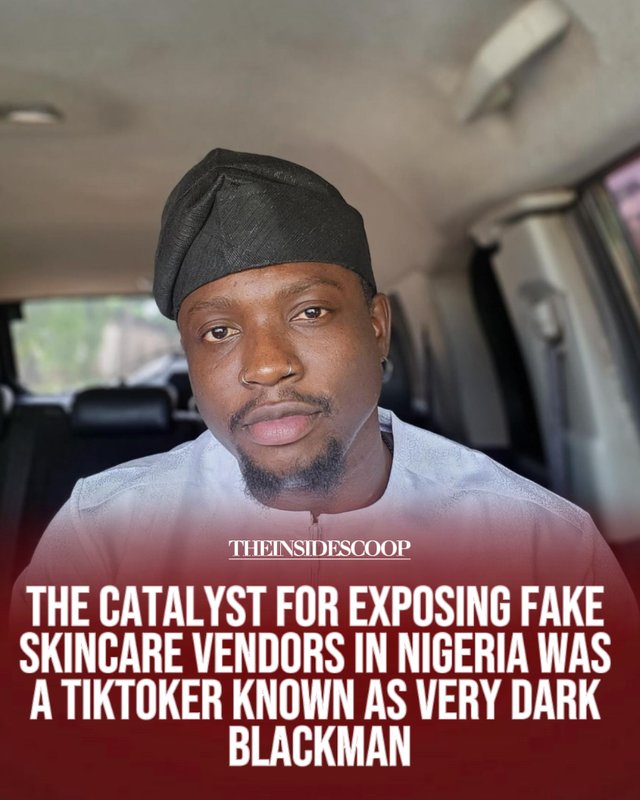
The catalyst for exposing fake skincare vendors in Nigeria was a TikToker known as Very Dark Blackman. Known as Very Dark Blackman for his complexion and always calling out people from his room, he called out Jenny’sGlow skincare for selling unlicensed products. The National Agency for Food and Drug Administration and Control (NAFDAC) subsequently sealed her store in Abuja for selling products without proper certification.Very Dark Blackman’s video showcased negative reviews from users who had experienced adverse effects from these ‘organic’ products. Many so-called organic skincare brands in Nigeria create products by mixing unconventional substances like powdered milk, carrot, and palm kernel oil. These ingredients can be abrasive on the skin, leading to hyperpigmentation, acne, and even liver damage. Glorified bleaching creams disguised as organic products flood the market, enticing consumers with promises of lighter complexions.
Skincare vendors often use popular celebrities and influencers to market their products. However, these endorsers may not even use the products themselves. The World Health Organization (WHO) reports that 77% of Nigerian women use skin bleaching creams, highlighting the demand for such products.Fake skin care vendors have become ubiquitous in Nigeria, operating openly in markets, online platforms, and even in some retail stores. These counterfeiters capitalize on the popularity of well-known brands, creating fake products that are often indistinguishable from the originals. This has led to a surge in consumer complaints, with many reporting adverse reactions, skin damage, and financial losses.
The proliferation of fake skin care vendors has severe consequences for genuine producers. These producers invest heavily in research, development and quality control to create effective and safe products. However, their efforts are undermined by counterfeiters who flood the market with cheap, substandard products, making it challenging for consumers to distinguish between genuine and fake products.
Genuine producers face significant financial losses due to the activities of fake skin care vendors. Counterfeit products are often sold at lower prices, making it difficult for authentic products to compete. This forces genuine producers to reduce their prices, affecting their profit margins and ability to invest in research and development. Moreover, the presence of fake skin care vendors erodes consumer trust in the market. When consumers purchase fake products, they are likely to experience adverse reactions or disappointing results, leading to a loss of faith in skin care products altogether. This has a ripple effect, making it challenging for genuine producers to convince consumers of the efficacy and safety of their products.
To combat the menace of fake skin care vendors, regulatory agencies, such as NAFDAC must intensify their efforts. NAFDAC should increase surveillance, conduct regular raids and prosecute offenders to serve as a deterrent. Additionally, genuine producers must adopt innovative strategies to protect their products and consumers. Consumers also have a crucial role to play in combating fake skin care vendors. They should be cautious when purchasing products, ensuring they buy from reputable sources. Consumers should also report suspicious products or vendors to regulatory agencies, helping to create a safer market for everyone.
There is a need for increased awareness and education on the dangers of fake skin care products just like Verydarkblackman. Public awareness campaigns can help consumers make informed decisions and avoid counterfeit products.